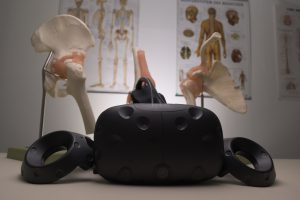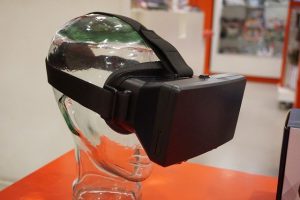Science leaves us with some really interesting inventions. Science also gives us frequent innovations and we are benefiting from that on an almost daily basis. Science brought us the internet. That is amazing, everyone can read and watch almost anything online, not to mention socialize. It brought about many opportunities for work and joy. People can vote online, bet online with the Casimba bonus code, for example, and even study online!
Science also brought us virtual reality, or VR. VR is very interesting because you can take your mind off something you are doing and transport yourself into your favorite video game. Movies can be watched through VR and you can even talk to people in VR.
What about science? Does it have any benefits from VR? It absolutely does and here are just a few ways science benefits from VR.

Medicine
It is interesting that you can learn medicine with VR. How, you may ask? Well, simple, you use VR to view how an operation is performed. You can make pretty realistic simulations of operations and then the student would practice in VR. Mistakes would still be realistic, and the entire procedure would be realistic. It is also a great way of simulating the human body, both for operations and on a more microscopic level. Lessons would be much more interesting and they are, for some people at specific universities.
Aviation
While doctors to be are using VR to practice surgery, or rather, surgeons to be are, pilots are also using VR to practice flying. Simulators which looked like cockpits and actually were cockpits already existed to an extent. Now, you don’t have to have all the equipment in its actual form, but you could rather do it digitally, through a very realistic interface. Pilots can practice flying without the academies having to spend all that much money on equipment.

Microscopic Research
While regular research through a microscope is interesting and you could view a certain something through a small viewer, you could also put on a VR headset and view it with comfort, while also controlling the level of zoom. This is being actively worked on, because VR adds a level of comfort and convenience which wasn’t possible until now. It is still a long way from being mainstream at most research facilities but someone will most likely offer a solution in the coming years.
Neurology
The brain is amazing. With studies involving VR and the human brain, it was shown that the brain makes complex maps of the locations it visited. Rats, on the other hand, didn’t show such a fondness for VR scenes, compared to real life. Given that humans are engaged a bit more, when VR starts involving even more senses, namely smell and touch, more could be found out about how brains work (animals often rely on smell and touch).
VR is an amazing piece of technology. When hardware becomes better so that people do not get nauseated from poorly rendered VR, its applications will be even more widespread. Once the technology is there, VR will find more uses, in science as well.

